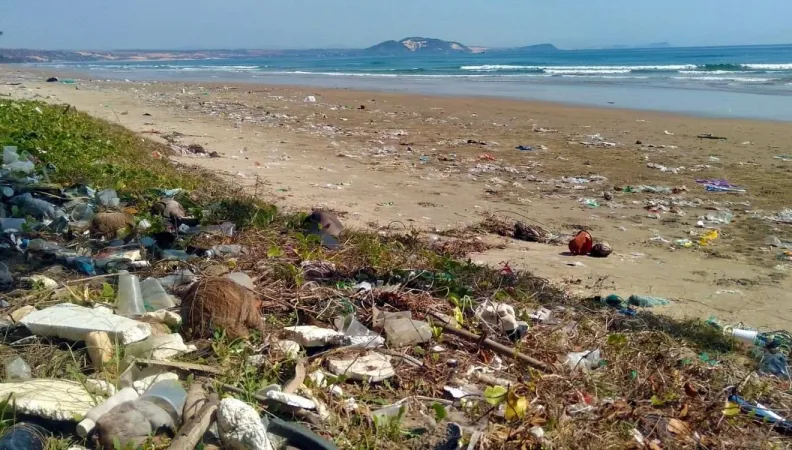Share the page
Regional project for plastic waste management in the Atlantic Ocean
Project
This project is carried out with the support of the European Union



-
Project start date
-
Status
Completed
-
Project end date
-
-
Project duration
-
3.5 years
-
AFD financing amount
-
€ 2 500 000
-
Country and region
-
Location
-
Multi-country in the Caribbean
-
Type of financing
-
Beneficiaries
-
OECS
This project is carried out with the support of the European Union

The content of this project information sheet falls under the sole responsibility of the AFD and does not necessarily reflect the opinions of the European Union.
The objective of this project, which is financed with funds delegated by the European Union under its solid waste management program, is to combat plastic pollution and its devastating effects on biodiversity and human health. It will create a sustainable economic model for plastic waste management and recycling among the countries of the Organisation of Eastern Caribbean States (OECS) of which Guadeloupe and Martinique are associate members.
Context
Waste management is a major challenge for island States, with the increase in imported products and the lack of facilities with a capacity to manage and safely dispose of toxic and polluting substances. The CARIFORUM countries produce 13 million tons of solid waste a year. This has a major impact on the marine environment, especially plastic waste. Marine pollution, which is caused by waste and wastewater, affects all Caribbean waters. It poses a major threat to the blue economy as it affects the value of the goods and services provided by oceans, particularly the quality of fisheries and the marine environment, which is invaluable to the tourism sector.
Description
This plastic management project aims to replicate a pilot project for the collection and treatment of plastic, particularly PET (polyethylene) and HDPE (high-density polyethylene), which is currently being implemented in Saint Lucia (RePLAST-OECS). (PET is clear, while HDPE is opaque.) Two pilot projects will set up a system of collection and export of waste to recycling points near production areas, with the assistance of a consultant and under the coordination of OECS.
The local legislation on waste and plastic management will be analyzed, along with the partnerships that need to be formed with the private sector, collection points, existing plastic waste stocks on the islands, and the public waste management utilities responsible for them. Communication and awareness-raising campaigns on plastic collection and recycling will also be conducted by OECS, in coordination with AFD and the EU, as well as the other agencies responsible for the implementation of the regional program, GIZ and UNEP.
Impacts
Three main outcomes are expected:
- A reduction in the production of plastic waste, with a possible ban on single-use plastic, along with activities to raise awareness of national authorities and the public of the environmental and health risks related to plastic pollution
- The implementation of logistic chains for collection, reuse and recycling in two selected countries, which may culminate in the establisment of regional treatment facilities
- An enhanced public policy dialogue on waste management and plastic pollution in the Caribbean


